Fighting fire with data. Scaling solutions. Bankrupting poverty. Investing in equitable futures. Raising the grade in education. That’s Econ 101 at UC San Diego.
In the UC San Diego Department of Economics, we are pursuing impact without limits. We harness theory to real world applications, so our ideas and actions benefit people around the globe. From working to build greater climate resilience to seeking an end to extreme poverty, UC San Diego economists are delivering insights the world needs to thrive.
Learn more about some of our faculty — the impactful questions they ask and their innovative answers.
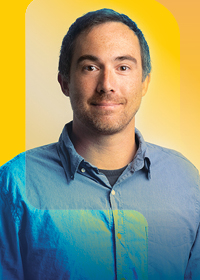
Judson Boomhower
Assistant ProfessorHow can we build up our climate resilience?
Climate change is a hot topic. But it’s not too hot to handle for environmental economists like Judson Boomhower.
A contributor to the U.S. National Climate Assessment, Boomhower has shown in his data-driven work that California’s wildfire building codes make a big difference when it comes to surviving a wildfire. Remarkably, the codes not only help new buildings to not catch flame but they also help protect older, neighboring homes, those built before the codes were in place. In other work, Boomhower tackles the state’s so-called “orphan wells”— oil and gas wells abandoned by their operators — and what it will take to fix the problem.
Boomhower, who earned his Ph.D. at UC Berkeley, is an Andrew Carnegie Fellow, a former Fulbright Scholar and an award-winning undergraduate teacher.
Working with collaborators at UC San Diego and elsewhere, Boomhower has built a unique research dataset to help our society build climate resilience with both environmental quality and economic wellbeing in mind.
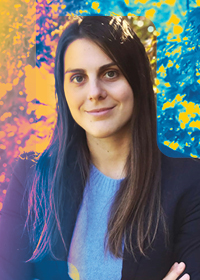
Clemence Idoux
Assistant ProfessorDoes bussing kids to different schools help or hurt them?
School choice seems like a good thing. Providing transportation to those chosen schools would also seem to be good. But is it?
Read MoreIn recent research, Clemence Idoux and colleagues examine what happens in two large urban school districts, Boston and New York City, where schools use open enrollment systems, enabling students to attend a school of their choice rather than one based on where they live. The study is only one of a handful to assess commute times and test scores and college attendance. The team’s findings don’t lend themselves to a one-size-fits-all recommendation but provide a lot of food for further thought: Bussing helped with integration, some — and that’s a worthy goal for some districts. On the other hand, academic outcomes seem variable, and long commutes might even harm some students. Would the money spent on transportation be put to better use improving neighborhood schools?
One of the newest faculty members in the UC San Diego Department of Economics, Idoux joins us from the Wharton School of the University of Pennsylvania. She earned her Ph.D. at MIT.
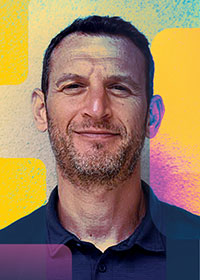
Nir Jaimovich
Professor, Anonymous Family Chancellor Endowed Chair in MacroeconomicsCan we bring back good, well-paying jobs for most of us?
The middle class has been hollowed out. That may not be a surprise to anyone reading. But why? That’s where Nir Jaimovich comes in.
Read MoreJaimovich has taken a close look at “jobless recoveries” from recent recessions — a relatively new phenomenon whereby the overall economy improves but people’s jobs don’t bounce back as readily. Part of the reason, Jaimovich has shown: Routine jobs have disappeared — middle class jobs whose tasks can be automated (think bank teller, machine operator, administrative assistant). Non-routine professions have been hardier, but these are on two ends of the economic spectrum, the most highly and lowest paid professions. The world of work is getting increasingly polarized between programmers and janitors, analysts and baristas – and the ripple effects are profound.
A broad and big-picture thinker who relies on empirical data to assess major trends like rising economic inequality, Jaimovich started his career at UC San Diego, made a big splash at the University of Zurich and is now back on our campus to do even more impactful work.
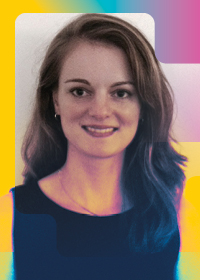
Katherine Meckel
Associate ProfessorDid the Affordable Care Act (ACA) have an unintended consequence for parents?
The ACA mandated offering health insurance to adult dependents under 26. Did this added benefit “lock” some parents into their jobs?
Read MoreKatherine Meckel’s work suggests “yes.” After crunching the data, Meckel, along with co-authors Hannah Bae and Maggie Shi, show that parents whose adult children qualified for additional dependent coverage were more likely to remain with their pre-ACA employer and remain with that employer for longer. The effects were largest for dependents with higher healthcare costs and when the parent did not cover other family members.
In other work, Meckel has investigated the role of food stores in nutrition assistance programs such as SNAP and WIC, showing in one case how efforts to reduce pricing fraud led some stores to drop out of the program entirely.
The central themes of her work: What happens when the provision of public services is, essentially, contracted out to private firms? And what are the unforeseen effects of shifting policies?
Like a number of her UC San Diego Department of Economics colleagues, Meckel serves as a faculty research fellow at the National Bureau of Economic Research.
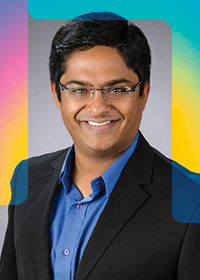
Karthik Muralidharan
Professor, Tata Chancellor's Professor of EconomicsCan pandemic learning losses be reversed?
He talks a million miles a minute. In his office, he prefers a treadmill to a chair. But what really drives Karthik Muralidharan is getting out in the field.
Read MoreIn the field, especially in India, Muralidharan runs experiments and tests policies to improve the effectiveness of public spending in the social sector — assessing what works and what doesn’t in education, health and social protection programs. A particular focus and passion: improving educational toutcomes for Indian schoolchildren of all backgrounds. Most recently he’s shown that after-school programs in India were both highly effective and cost-effective at reversing learning loss from COVID school closures.
Muralidharan is actively involved in policy advising and capacity building in India, at both the national and state levels of government. Many of his recommendations have been adopted in India’s new National Education Policy 2020 — and that’s one reason he was named to Apolitical’s global list of “100 Most Influential Academics in Government,” as well as a “Leader of Tomorrow” by India Today.
Muralidharan also writes a column on economic policy for the Hindustan Times and teaches a popular course on the Indian economy at UC San Diego.
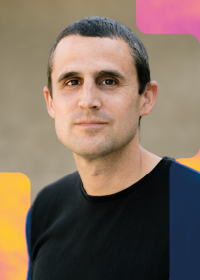
Paul Niehaus
Professor, Chancellor's Associates Endowed Chair in EconomicsWhat if we fight poverty directly – with cash?
Putting an end to extreme poverty is no mean feat. But that’s exactly what Paul Niehaus aims to do.
Read MoreAn economist and entrepreneur, Paul Niehaus had a radical idea while still a Ph.D. student at Harvard: What happens if you send cash directly to those who need it — without any strings attached? He and other graduate students at Harvard and MIT started GiveDirectly on that simple and powerful premise in 2008. Today, GiveDirectly is the leading international NGO specialized in digital cash transfers — consistently rated as one of the most impactful ways to give. Niehaus is co-founder, former president and current director of GiveDirectly.
Niehaus also co-founded and served as a director of the enterprise payments company Segovia and the digital remittance company Taptap Send.
Named a “Top 100 Global Thinker” by Foreign Policy magazine, Niehaus conducts large-scale research projects to design anti-poverty programs, implement them and, critically, examine their efficacy and impact.
UC San Diego Economics connects top-tier academic research to dynamic conversations in policy and business at conferences and forums throughout the year. Students receive focused support to connect with industry leaders and succeed in high-impact careers. What we discover and what we learn starts with partnership.
To find out more about how you or your organization can participate in our limitless impact, contact Stephanie Venti.